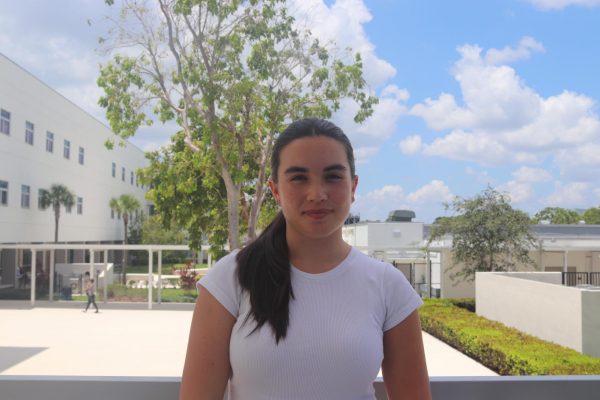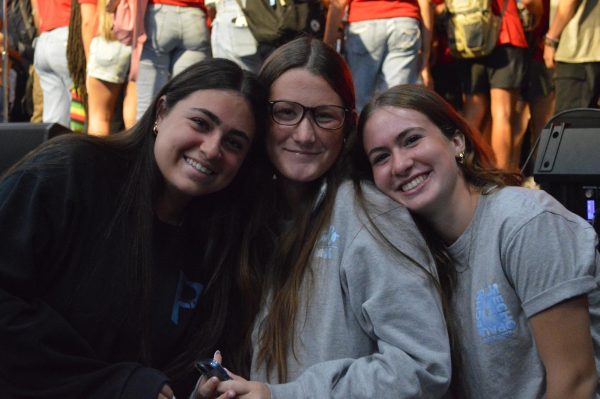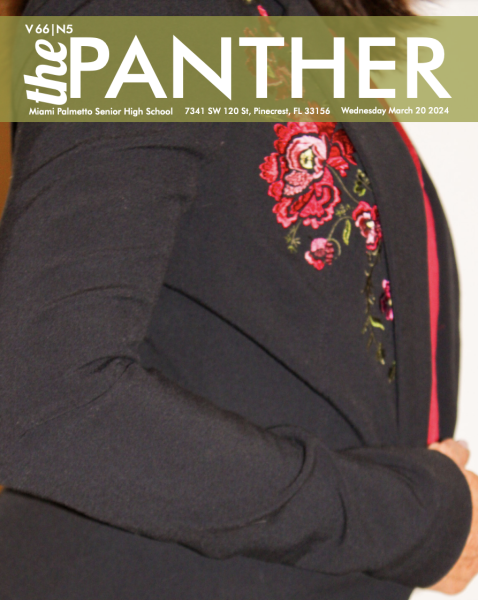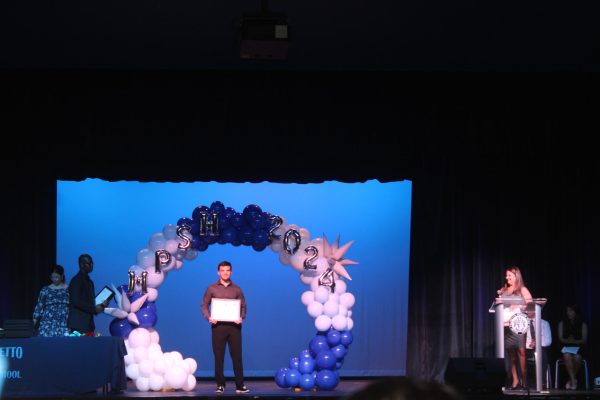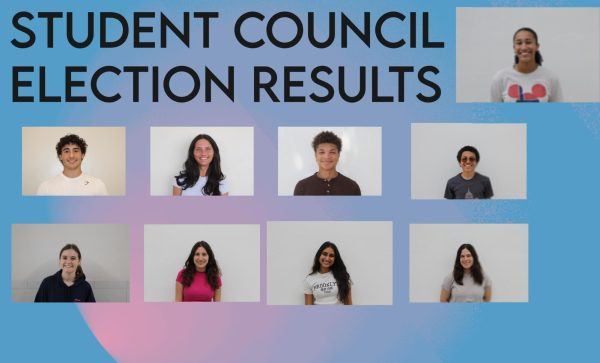Childhood Cancer Awareness Month: Spreading the Hope
September 26, 2022
Every September, childhood cancer organizations worldwide aim to spread awareness and raise funds for the children and families affected by all kinds of cancer. Approximately 400,000 children are diagnosed with pediatric cancer annually, making it one of the leading causes of death for children ages 5-14.
At Miami Palmetto Senior High School, the LEO Club has partnered with OneBlood, a Florida-based nonprofit, to host several drives throughout the year. This provides students 17 and older along with teachers the opportunity to donate blood. The donations are given to hospitals in order to aid patients requiring blood transfusions, as well as medical researchers looking to conduct laboratory tests.
“Now with hurricane season there will be even more need for blood,” MPSH LEO Club sponsor Joyce Brislawn said. “Other states like Georgia sometimes take blood from Florida because it doesn’t last long and if it’s not used within a month, it’s not good anymore.”
For the September drive, the LEO Club gave people the option to donate not only blood but plasma as well. Plasma is essential to helping the cause as it helps fight off the infections and diseases cancer patients are prone to. Plasma transfusions are often life-saving.
“When kids suffer [from] leukemia, they lack the plasma that healthy people have, and by donating it, it goes straight to childhood cancer research and patients and helps with their chemotherapy,” MPSH senior and LEO Club member Megan McCreary said.
Alongside plasma and blood drives, LEO Club also worked in partnership with Photography Club to host a pediatric cancer supply drive. From Sept. 6-23, students could donate items such as stickers, coloring books, puzzles and more as requested by the children and families through the Sofia’s Hope organization.
“In everybody’s mind they just picture people with cancer, nobody thinks about how some of those patients are little kids,” Brislawn said. “When people bring coloring books and things like that for the kids that are stuck in the hospital for long periods of time, I think it’s very helpful and keeps them entertained.”
Despite the severity and reach of childhood cancers, the condition remains one of the most underfunded research divisions in the medical field, with more emphasis and awareness placed on cancers that affect adult populations.
“It’s important that people gain awareness of the types of cancers kids have,” Miami Cancer Institute Senior Child Life Specialist Laurie Sargent said. “They should also recognize the funding that’s required in terms of developing new medications or protocols.”
While donating blood or plasma is one of the best ways to help those with pediatric cancer, some potential volunteers have medical or blood conditions that prohibit them from doing so. However, there are many other ways for people to contribute, such as donating money, attending fundraisers or even volunteering at hospitals.
“My little cousin suffers from juvenile diabetes and we did a lot of runs and walks for diabetes awareness and foundations, and a lot of these functions coincided with childhood cancer research,” McCreary said. “Even if you do not have the money to make a donation, there are plenty of fundraisers where you can just show up and help.”
In addition to participating in community activities and fundraisers, people can also involve themselves in local organizations to help combat childhood cancer. On a larger scale, national organizations such as the American Cancer Society and the Leukemia & Lymphoma Society educate people on the disease and work towards its elimination.
“If there is somebody that you know who is going through treatment or has been through treatment, they probably know various organizations that you could get involved with to help the cause,” Sargent said. “The families of a lot of kids who have been to treatment start foundations and they support other families that go through treatment.”
Oftentimes, people are left in the dark about certain issues simply because those issues do not directly affect them. Volunteers, as well as leaders in local and national organizations, have suggested the best way to help those who suffer from childhood cancer is through education, understanding and advocacy.
“That could be your child or family member and it is not fair that babies and children have to start their lives already suffering from such a harsh disease,” McCreary said. “It is important that people help as much as they can because the kids deserve a fighting chance.”



